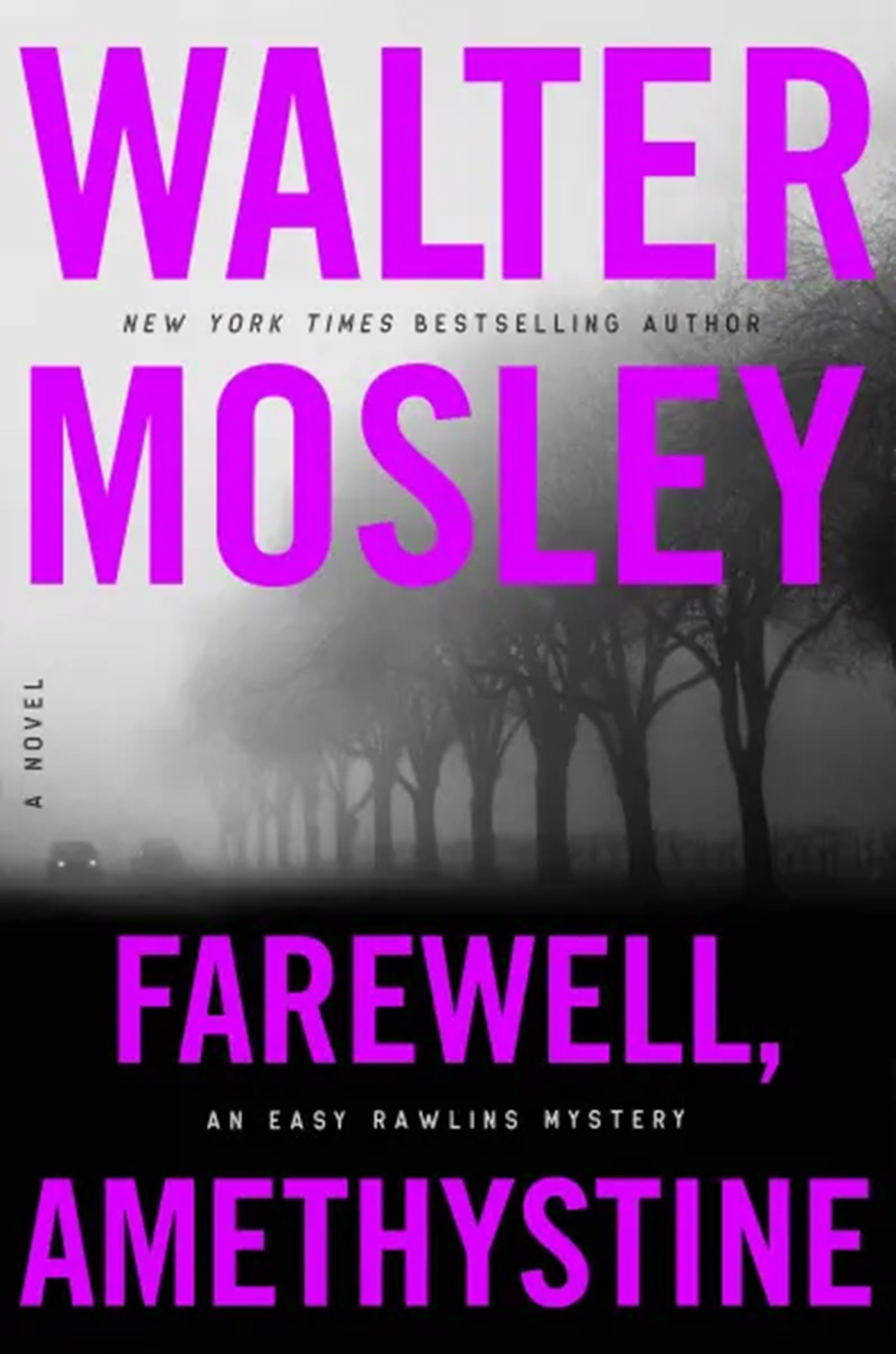
Easy Rawlins is back in Walter Mosley’s ‘Farewell, Amethystine’
For more than three decades, Walter Mosley has been one of the widest-ranging and most interesting of American writers.
Mosley has published science fiction and erotica, nonfiction and children’s books. But the majority of his more than 40 books are crime fiction, and their heart is his consistently excellent series about Los Angeles private detective Easy Rawlins.
In 1990, Mosley’s terrific first novel, “Devil in a Blue Dress,” introduced Ezekiel “Easy” Rawlins, a Black World War II combat veteran trying to make his way in Los Angeles in 1948. The noir mystery was rooted in Mosley’s vivid depiction of L.A. as a physical setting but also as a complex, multicultural microcosm of a changing nation.
At its center was Easy, himself a complex and fresh take on the detective hero, a man who can never for an instant forget the boundaries his race creates but never stops pushing them. (A 1995 film version of “Devil in a Blue Dress,” starring a young Denzel Washington, memorably etched Easy as a character.)
The subsequent books in the series have followed Easy into the latter half of the 20th century as he built a practice as a private investigator, gained a family of adopted children, began and ended romances, and continued long friendships, some dating back to his childhood in Houston. The crimes Easy investigates, and sometimes becomes embroiled in, often hinge in some way on race and class.
Now comes the first book featuring Easy since “Blood Grove” in 2021 and the 16th in the series, “Farewell, Amethystine.”
It finds Easy in 1970, his life in many ways satisfactory as he turns 50. The novel opens with him talking politics with a group of friends, including his deadly lifelong best friend, the career criminal Mouse, who lately has been spending his time reading philosopher Herbert Marcuse. (Their conversation about the California university system trying to fire Angela Davis for teaching about communism sounds eerily contemporary, as does an aside about people who think “the newest flu epidemic was somehow caused by the moon expedition.”)
Easy now owns his own detective agency, with several employees. Thanks to a satisfied client, he lives in a spectacular mountaintop mansion with daughter Feather, and his grown son, Jesus, is visiting with his wife and baby daughter.
If you think all that sounds too good to last, you’re right.
Easy’s receptionist brings in a new client, who’s been referred by the detective’s old friend Jewelle Blue.
Amethystine Stoller is a confident young woman with “satin brown skin and amber eyes,” Easy tells us, and a “subtle scent … reminiscent of the bouquet of some ancient forest, welcoming but having no trace of sweetness.”
Easy always appreciates attractive women, but Amethystine hits him hard. Her case seems straightforward enough: She wants to find her ex-husband, Curt Field, whom she divorced (for being boring) but is on good terms with, and who seems to have vanished.
While Amethystine is filling in the details, Easy is falling into a trance. She reminds him, he realizes, of “a woman named Anger.” He knew Anger in Houston when he was a 15-year-old orphan, and she was a few years older and “only did jobs that were in opposition to whatever law there was.” His infatuation with Anger ended about as badly as you’d expect, but he’s never forgotten her.
But it’s a mystery to him why the poised, professional Amethystine reminds him of that outlaw love, and that mystery, more than Curt’s disappearance, leads him to accept the job.
That job, of course, turns out to be much more complicated than it looked. Easy runs into obstacles everywhere and gets involved in another hunt for a missing person: Commander Mel Suggs, one of his few friends in the LAPD, is incommunicado.
Easy confers with Mel’s girlfriend, “slender and deadly, brilliant and broken” Mary Donovan. “Mary D,” he tells us, “was like a great novel — just one read-through was not enough to understand what it means.”
She tells him Mel is in trouble, and that’s all Easy, whose loyalty to friends is key to his character, needs to know.
Most of Easy’s interactions with the police are more like the one that happens when an underchief in the department has Easy arrested and tries to force him to confess to the murder of someone he’s never heard of.
Easy says, “Seven out of ten of the city’s White residents would have said it couldn’t happen — not in America. Out of the remaining three, two would have said that I could have beaten the false charges in court. Eleven out of nine Black Angelenos would have known that I was destined for a lifetime behind bars or a seat in the gas chamber.”
But Easy persists, and adds finding the connection between his arrest and Mel’s disappearance to his to-do list. The plot of “Farewell, Amethystine” becomes an intricate puzzle, rich with lively characters and elegant language. And Easy finally discovers why his new love reminds him of the long-lost Anger./Tribune News Service
“FAREWELL, AMETHYSTINE”
By Walter Mosley
Mulholland Books, $30
Grade: A
Walter Mosley attends Literati Turn Out For Authors Guild Foundation Gala in late May in New York City. (Photo by Roy Rochlin/Getty Images for Authors Guild Foundation)


